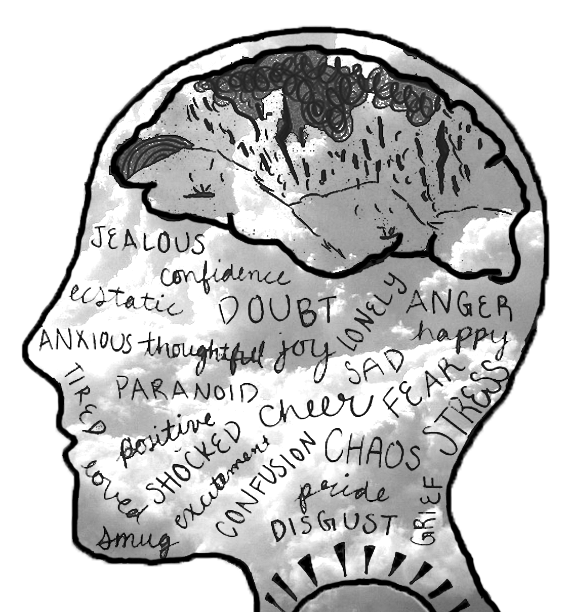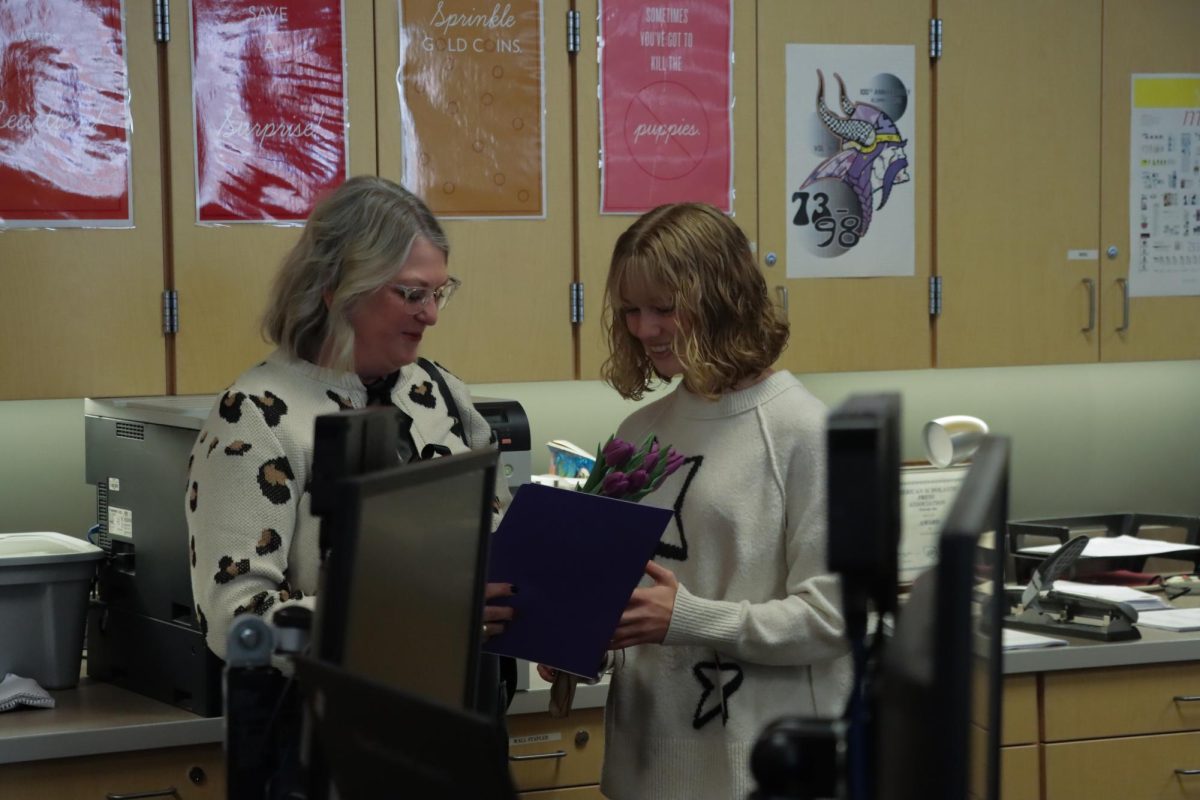They say laughter is good for the soul.
So is crying.
How you handle those emotions is where it can get tricky.
Emotional health is how you handle your emotions and deal with the challenges that come at you. An emotionally healthy person can effectively navigate their full range of emotions and control their actions based off how they are feeling.
Counselor Michael Sanchez describes emotional health as having the ability to deal with conflict and being strong when you need to be. This does not mean you have to be happy all the time, he says.
“There is this common misconception that crying is unhealthy. What is unhealthy is if you do not express emotions or are only always happy, angry or sad. An emotionally healthy person, in a full year, has laughed, cried, been angry and loved someone. They have experienced what is going on,” Sanchez said.
Vice Principal Lorraine Hirakawa sees emotional health in a different light, more in the self-esteem aspect.
“[Emotional health] looks different for each person. Hopefully, it means that they feel good about who they are and are confident in themself. Or at least, they are happy with the progress they are making,” Hirakawa said.
Many things can harm or inhibit a person’s emotional health, whether it is an experience or their own self-doubts.
“We deal with a lot of students that have had adverse childhood experiences (ACES), these can cause a lot of trauma for young people. Other things could be abuse, physical or mental, insults, self-esteem damage, bullying or feeling insecure,” Hirakawa said.
Missing aspects of Maslow’s hierarchy can also expand on someone’s lack of emotional health. If they are skipping the lower levels, such as basic physiological needs, safety and the feeling of belonging, then it is harder to be secure in your esteem and self-actualization, the upper levels, Hirakawa says.
Once experiencing some sort of challenge, the most damaging thing to one’s emotional health is denying it or building a wall, Sanchez says.
“When bad things happen, we decide not to address it and build an emotional wall. This can cause us to become isolated or detached. The world sucks, so we must learn to overcome conflict,” Sanchez said. “[Another damaging factor] is when we count solely on others for our encouragement, when we need others to make us feel better. We are strong as individuals if we have the tools to do that.”
There are many ways that someone can maintain their emotional health, or improve it after pushing through a tough time. It will take time and practice but being emotionally healthy is attainable for all students.
“There is a lot of work that goes into self-care. You could exercise, meditate, have a spa day. It is all about making sure you are taking care of yourself, which can happen in different ways. It can be tuning out and just being [for a short amount of time],” Hirakawa said.
It is also important to talk out your emotions, Sanchez says. The most common way of releasing thoughts is through writing or journaling, anything creative.
“The best way [to improve your emotional health] is to talk often, talk things out. Find a network of individuals and be vulnerable, whether that is crying laughing or jamming out in the car. Look for opportunities to get out of your shell and you will continue to grow healthy, emotionally,” Sanchez said.
One challenge to emotional health could be loss of a loved one. It forces people to experience new waves of emotions and take on life without someone that was a constant in their life.
Sophomore Kya Coffman recently lost her brother. She has been coping with his passing over the past few weeks.
“The suggestions that I have [for dealing with loss] is to just surround yourself with people that love you and people that support you and do not be alone. If you are alone, your thoughts can wander, so just surround yourself with love even if it is people you are not typically hanging out with. When stuff like this happens, there are a lot of people out there that want to be supportive and want to help,” Coffman said.
Moving on from the loss of a loved one is definitely not an easy thing but you just have to hang in there, Coffman says. There are also many resources around the school and community, that will get you the help you need and back on track with your emotional health.
“Grief is challenging, it surprises you. When you think you have gotten over it, then it comes back. You need to accept you are going to feel that and that is okay. You also need to know who to go to. At the school, there are administrators, teachers and counselors who are skilled in trying to help. Know that it is okay to ask for help. Recognize it takes time and concentrate on remembering the good times. Eventually the pain will become less,” Hirakawa said.





